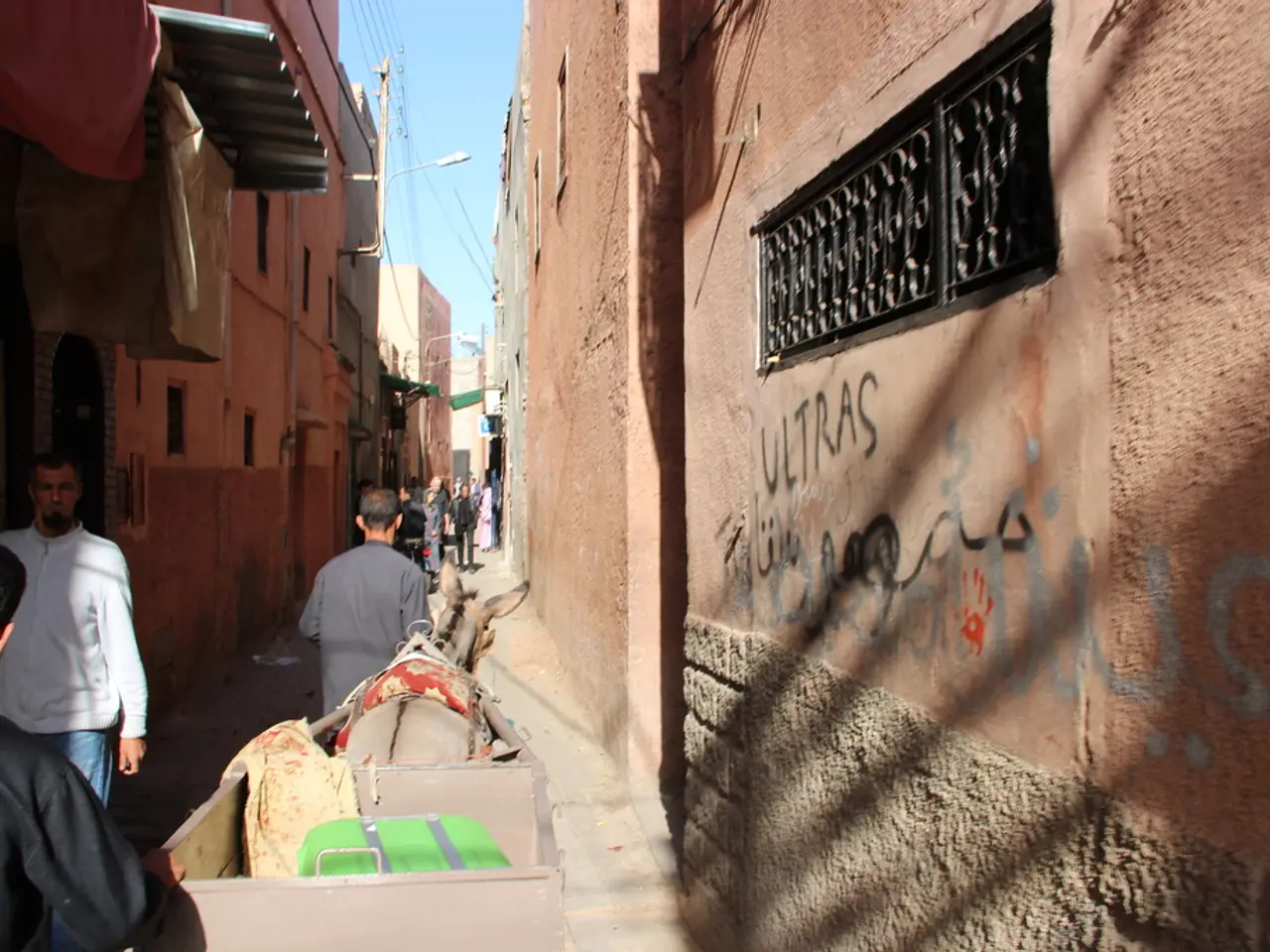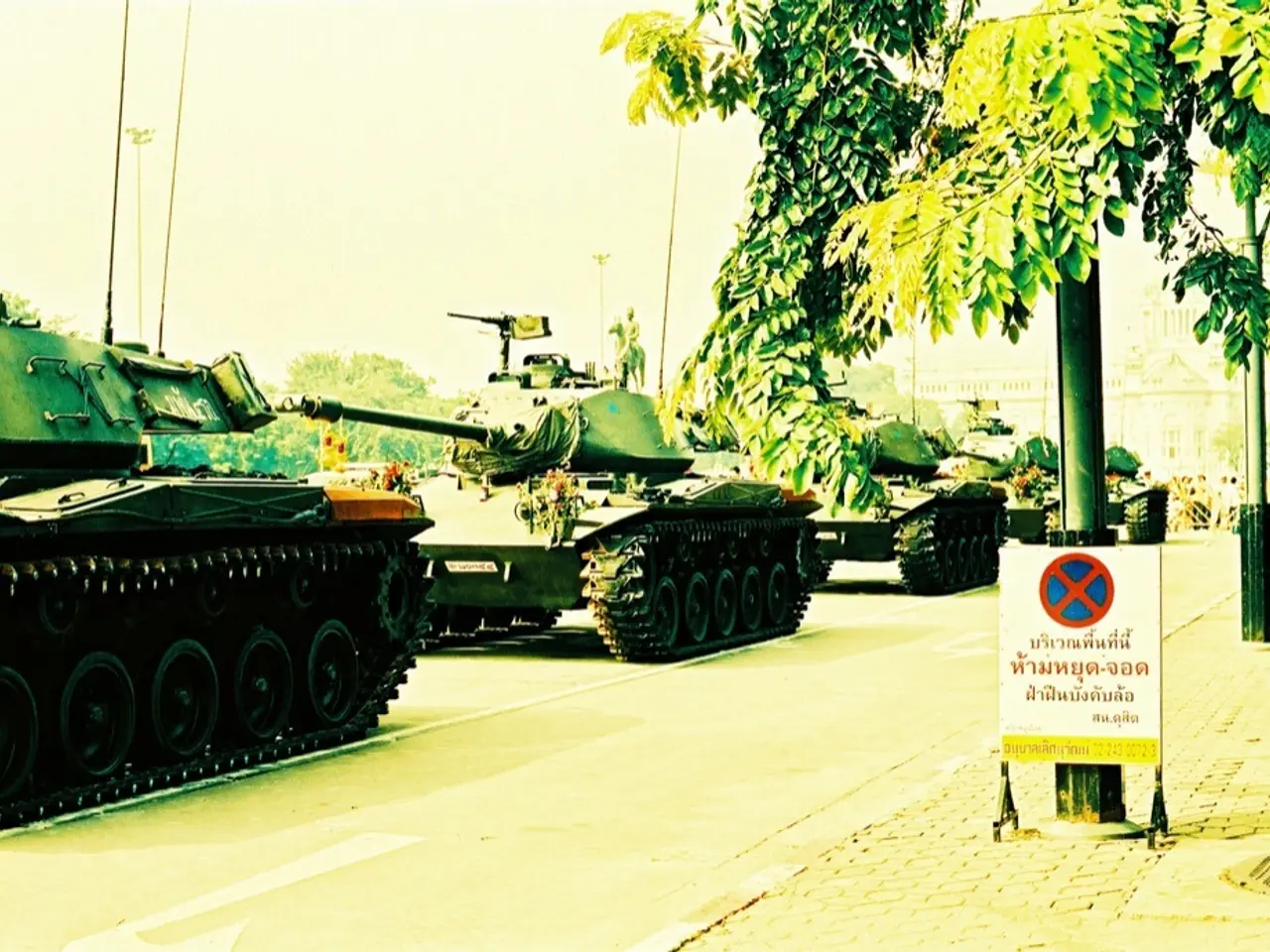Israel's move to escalate military actions against Hamas in the Gaza Strip draws harsh criticism - Backlash toward Israel over continued military operations against Hamas in Gaza region
The international community is responding with criticism and concern to Israel's decision to expand military operations and take control of Gaza City. The fear of humanitarian and security consequences looms large, as various nations urge caution, call for a ceasefire, and emphasise the need for humanitarian aid and respect for international law.
Germany's Stance
Chancellor Friedrich Merz has suspended military equipment exports to Israel that could be used in Gaza, dismissing Israel’s expanded military plan as unclear in its objectives and unlikely to end the war or secure hostages. Merz stated that Germany would temporarily not approve any exports of military goods to the Gaza Strip due to the tightening of military action.
European Union's Response
The European Commission President Ursula von der Leyen has urged Israel to reconsider its plan for Gaza, highlighting the risks of escalation and humanitarian harm. The EU leadership, including Commission President von der Leyen and Council President António Costa, have criticized the Israeli decision and called on the Israeli government to reconsider.
United Kingdom and Allies' Position
The UK and 31 international partners issued a joint statement condemning the humanitarian suffering in Gaza, denouncing the killing of civilians and constrained aid delivery, and demanding an immediate ceasefire and political solution. They also strongly condemned Hamas’s hostage-taking and called for unconditional release.
United Nations' Stand
The UN Security Council has warned Israel’s Gaza City takeover could trigger a worse chapter in the conflict with massive forced displacement. The UN High Commissioner for Human Rights Volker Türk has called for an immediate halt to Israel’s plan, underlining that a full military takeover violates international law and will result in more deaths and suffering. The UN also insists on unhindered humanitarian access and the release of all hostages and detainees.
United States' View
Contrasting other international actors, the U.S. ambassador to Israel has defended the Israeli operation as necessary to defeat Hamas, comparing the military effort to historical Allied bombing campaigns during World War II.
Criticism from Other International Voices
Many countries and experts criticize the feasibility and morality of Israel’s plan to encircle Gaza City, forcibly displace nearly a million civilians, and hold the city under siege for months. Israeli military sources reportedly also object to the plan, warning it risks a disastrous and protracted urban conflict resulting in high casualties.
The Humanitarian Situation in Gaza
The humanitarian situation in the Gaza Strip is catastrophic, with negotiations for a ceasefire and the release of hostages having failed. Reports suggest that the Gaza Strip still holds 49 hostages, with 27 estimated to be dead, two years after the Hamas attack on Israel on October 7, 2023. Many residents of the city of Gaza, which had about half a million residents before the war, have fled the fighting and are now housed in tent camps.
Calls for a Political Solution
The overall international stance strongly calls for ending hostilities, protecting civilians, ensuring humanitarian aid, and pursuing a political solution to the Israeli-Palestinian conflict rather than escalation of military control over Gaza. The Security Cabinet of Israel has presented a plan for a military victory over Hamas in the Gaza Strip, but the decision leaves less room for achieving the release of hostages and targeted negotiations on a ceasefire.
Pressure on Netanyahu
Netanyahu is facing strong pressure from both domestic and international sources to end Israel's military response to the Hamas large-scale attack. The Israeli army had previously stated it controlled 75% of the Gaza Strip, but the decision to expand operations and take control of Gaza City has sparked widespread criticism and concern. Hamas has warned that the capture of the city of Gaza would "come at a heavy cost" for Israel.
The European Union, along with Germany's Chancellor Friedrich Merz and the United Kingdom, have urged caution in Israel's military operations in Gaza, suspending military equipment exports and calling for a ceasefire. Meanwhile, the United States ambassador to Israel has defended the Israeli operation, drawing comparisons to historical Allied bombing campaigns during World War II. As the humanitarian situation in Gaza worsens with the city still holding 49 hostages, two years after the Hamas attack, the international community, including the United Nations and numerous other countries, strongly advocates for ending hostilities, protecting civilians, ensuring humanitarian aid, and pursuing a political solution to the Israeli-Palestinian conflict.






